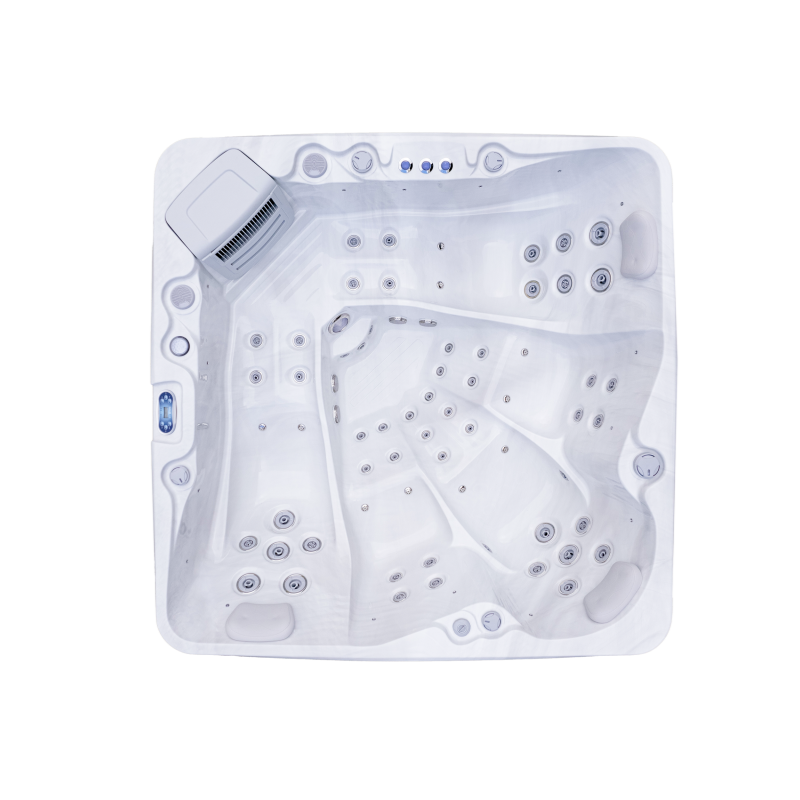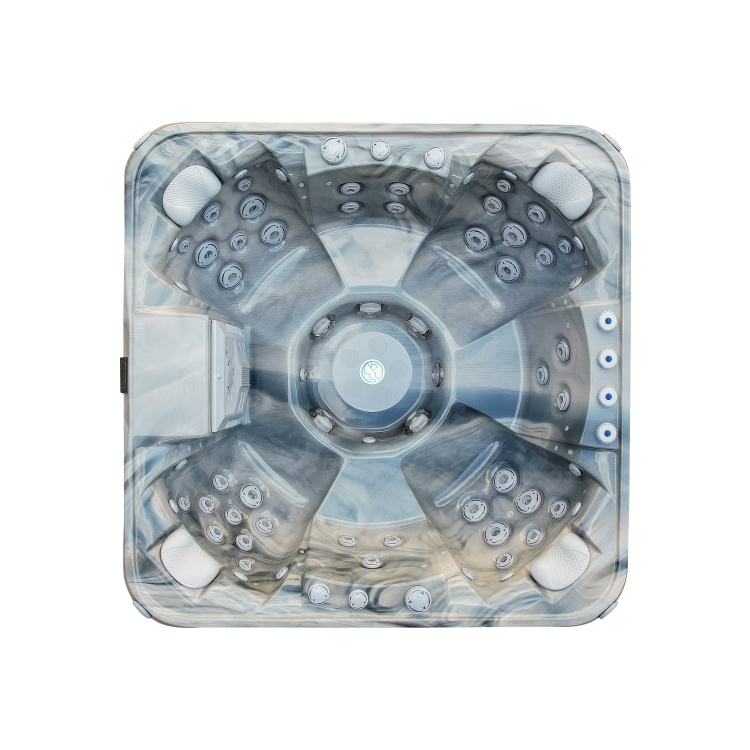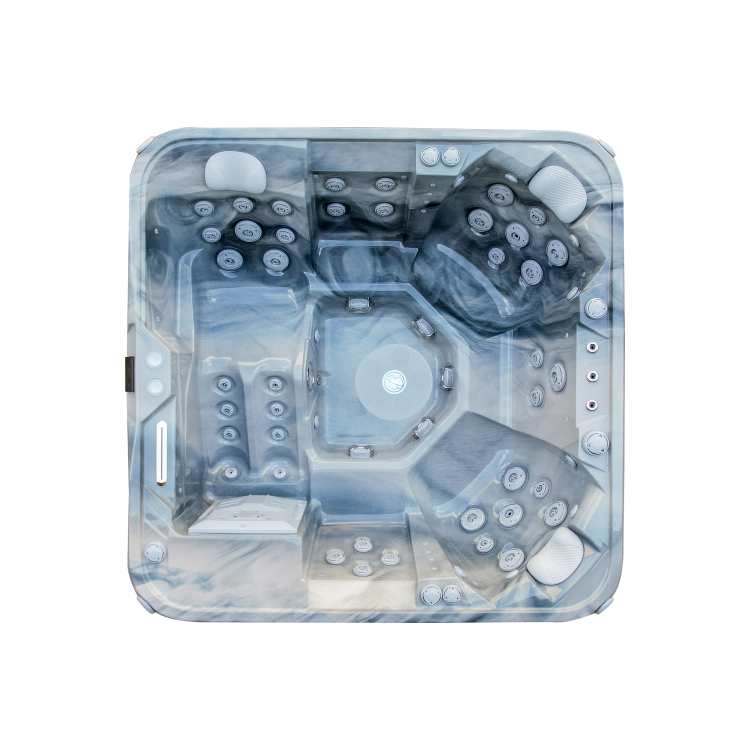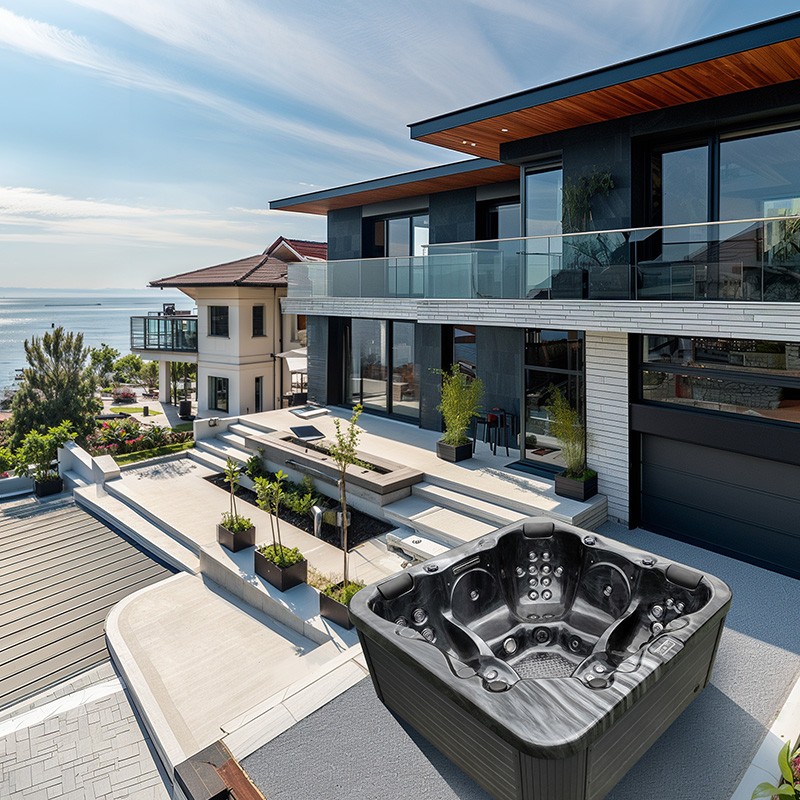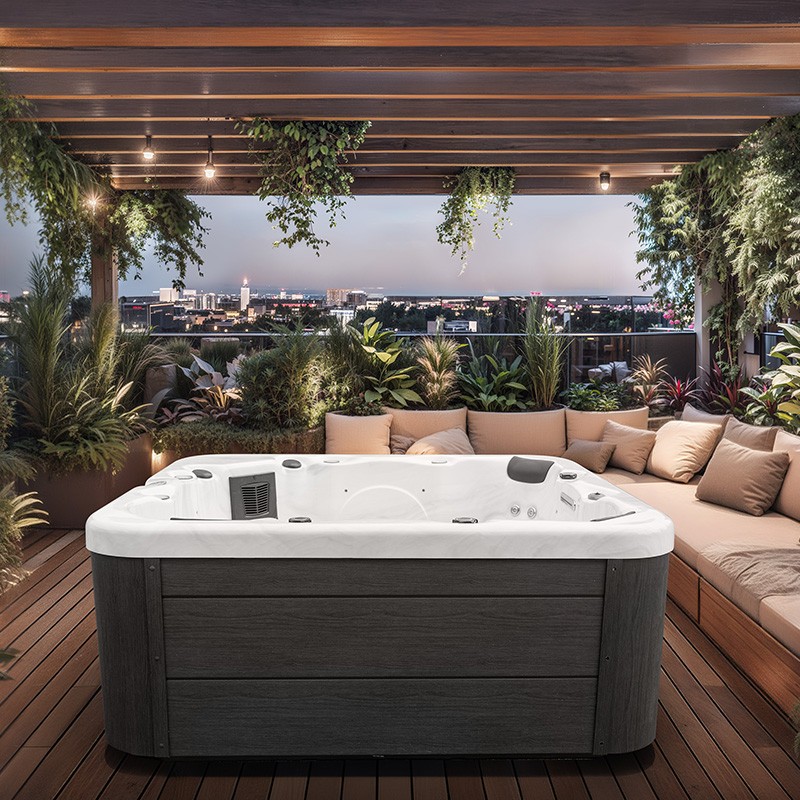Outdoor jacuzzi tubs are a must-have for many families, offering a relaxing experience through heated and jetted water. However, with increasing water scarcity, people are increasingly concerned about using and reusing water more efficiently. This leads to a common question: Can I use water from an outdoor jacuzzi tub to water plants?
This seemingly simple question actually involves several scientific and environmental considerations, including water chemistry, plant tolerance, and soil health. This article will explore these issues in detail to help you understand whether it's safe to use water from a spa jacuzzi tub for watering plants.
What is the composition of outdoor jacuzzi tub water?
Outdoor jacuzzi tub water differs from regular tap water because it often contains various chemicals to maintain water quality and prevent microbial growth. Here are some common chemical components:
1. Chlorine and Bromine
To keep the water clean, many people add chlorine or bromine to their outdoor jacuzzi tubs. These two chemical disinfectants effectively kill bacteria and other microorganisms in water. Chlorine and bromine are both powerful oxidants that rapidly break down organic matter and pathogens.
However, these disinfectants are not harmless. At high concentrations, chlorine and bromine are toxic to plants, interfering with biochemical processes in plant cells, causing them to wilt or die. While small amounts of chlorine and bromine may not cause immediate noticeable damage to plants, long-term use of water containing these chemicals can kill beneficial microorganisms in the soil, affecting plant health.
2. pH Adjusters
To ensure water quality stability, the pH of many outdoor jacuzzi water requires regular adjustment. Typically, the pH is maintained between 7.2 and 7.8, which is ideal for both humans and equipment. However, to maintain this range, acidic or alkaline substances such as sodium carbonate (to raise the pH) or hydrochloric acid (to lower the pH) may be added. If these chemicals accumulate in the soil, they can alter the pH and affect plant growth.
A pH that's too low (acidic) can damage plant roots, while a pH that's too high (alkaline) can make it difficult for plants to absorb essential nutrients, especially trace elements like iron and manganese.
3. Foam Inhibitors and Other Additives
Some people use foam inhibitors to prevent foaming in their outdoor jacuzzi water. Foam inhibitors are typically surfactants. If these chemicals get into the soil, they can affect water permeability, causing the soil to become loose or too compacted, hindering the absorption of water and nutrients by plant roots.
In addition, the water in your outdoor jacuzzi may contain residue from personal care products such as soap, shampoo, and skincare. The ingredients in these products can be harmful to plants, especially when they accumulate in the soil, disrupting the soil's microbial balance.
How do different plants tolerate chemicals?
Not all plants react to chemicals in the same way. Some plants can tolerate small amounts of chlorine and bromine in their water, while others are very sensitive to these chemicals.
1. Chemical-Tolerant Plants
Certain plants, such as some drought-tolerant succulents, cacti, and some salt-tolerant plants, are more tolerant to changes in water quality. These plants often have deep root systems or are less dependent on external water, making them relatively safe to use with water containing low levels of chemicals.
2. Sensitive Plants
On the other hand, some plants are very sensitive to changes in their environment, especially those that are sensitive to salt and chemicals, such as ferns, acidic soil plants (like azaleas), and some fruit trees and vegetables. For these plants, water containing chemical disinfectants can quickly trigger negative reactions, such as yellowing leaves, drying out, or stunted growth.
If your garden contains a large number of sensitive plants, watering them with water from an outdoor jacuzzi tub could kill them, or at least severely affect their health and growth rate.
Outdoor jacuzzi tub: What are the minerals in water and how do they affect the soil?
In addition to chemical disinfectants, outdoor jacuzzi tub water may also contain minerals. While these minerals are beneficial to plants in moderation, excessive use of water with excessive mineral content can negatively impact soil and plants.
1. Impact of Calcium and Magnesium
If you live in an area with hard water, the water in your outdoor jacuzzi may contain elevated levels of calcium and magnesium. When water containing these minerals is used to irrigate plants, calcium and magnesium can accumulate in the soil, gradually forming a salt layer. This salt layer hinders water absorption by plants and makes the soil harder and less breathable.
Long-term use of hard water for irrigation can also lead to salinization, which further reduces soil productivity and stunts plant root growth.
2. Accumulation of Trace Elements
Some trace elements in water, such as copper, zinc, and lead, are harmless to plants in small amounts and, in some cases, are even essential nutrients for plant growth. However, when these trace elements accumulate in excessive amounts in the soil, they can become toxic to plants, causing poisoning or other abnormal growth reactions.
How should outdoor jacuzzi water be treated for irrigation?
If you still want to use water from your outdoor jacuzzi for irrigation, there are several treatment options that can help minimize potential damage to plants and soil.
1. Remove Chemical Disinfectants
Before considering using water from your spa jacuzzi tub for irrigation, first ensure that the water contains low levels of chemical disinfectants. You can do this by stopping the use of chlorine or bromine for a period of time and allowing the chemicals to evaporate naturally. Typically, chlorine in water exposed to sunlight and air will gradually dissipate over a period of about a week.
Alternatively, you can neutralize the chlorine or bromine in the water with a chemical reducing agent, which will eliminate the effects of the disinfectant more quickly.
2. Dilute the Water
To minimize potential damage to plants, you can reduce the chemical concentration in your spa jacuzzi tub water by diluting it. Mix the water with regular tap water or rainwater before using it to water your plants. This diluted water will significantly reduce the chemical concentration and minimize the impact on your plants.
3. Watering Chemically Tolerant Plants
If your garden includes plants that are more tolerant to chemicals, such as certain grasses, shrubs, and drought-tolerant plants, you may want to use only spa jacuzzi tub water for these plants and avoid using it on sensitive plants.
4. Control Watering Amount and Frequency
Even if you decide to use treated spa jacuzzi tub water for watering, avoid frequent use. Using it moderately and in combination with other water sources can help minimize long-term effects on plants.
When is spa jacuzzi water not recommended for watering?
While there are treatments that can mitigate the potential damage to plants from spa jacuzzi tub water, there are still some situations where it's not recommended to use spa jacuzzi water for watering:
• Highly concentrated disinfectants: If you recently added large amounts of chlorine or bromine to your spa jacuzzi and haven't had time for it to evaporate or neutralize, it's recommended not to use this water for watering plants.
• High-value or sensitive plants: If you have high-value plants or plants that are sensitive to chemicals, it's best to avoid using spa jacuzzi tub water to avoid irreversible damage.
• Long-term use: Long-term reliance on spa jacuzzi tub water to irrigate plants in the same area can lead to a buildup of chemicals and minerals, affecting soil quality and even causing environmental problems.
What makes Guangzhou Huantong Industry a reliable spa manufacturer?
Our Lovia Spa brand is recognized as one of the top 5 spa brands in China, offering high-quality outdoor hot tubs, swimming spas, and massage bathtubs. Customers worldwide choose us because we are not just a factory, but also a global supplier that provides competitive prices, wholesale purchasing options, customized spa solutions, and promotional sales quotes.
If you're looking for a reliable supplier to buy at low prices while enjoying factory-direct wholesale discounts, Lovia Spa is your best choice.


